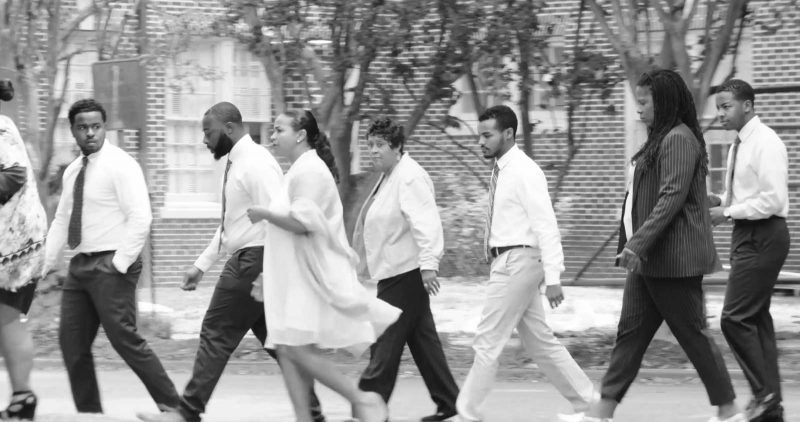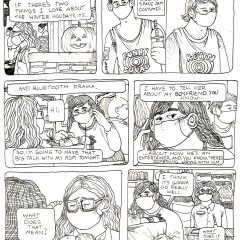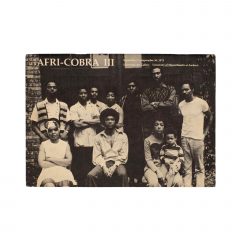
I’ve been reflecting on collective emotions — joy, anger, pain, things from our last year and a half. I couldn’t think past all the grief and mourning that is everywhere, like a blanket over this world, a malaise fog that infiltrates everything we can think, see, or feel. People’s lives have been drastically changing. Some people are realizing just how unhappy they are, and have been, and taking control of what they can change, maybe remembering a dream they had let themselves forget about, or were convinced wasn’t possible. Maybe in some of this tragedy and despair can come a reclamation of our fantasies in a renewed lust for life.
When I felt I could finally pull myself out of the mindless content that satisfied my desire to not think at all, a chaotic meditation, I wanted to watch movies that filled me up with passion and desire, leaving a residue of inspiration. I wanted to watch other people long for things or people, to pine, to yearn. To yearn there must be a passion, there must be interest, it can’t all just be numb. In that yearning maybe we drift into a world we created in our minds where those things we yearn for, we can feel.
Time (2020)
American Documentary film by Garrett Bradley about Sibil Fox Richardson, known as Fox Rich, and her family’s fight to get her husband, Rob Rich, released from prison. Rob had been sentenced to sixty years in a Lousianna State Penitentiary for robbery. Fox had also been incarcerated, serving three years for her involvement in the robbery. Upon her release, Fox spent her years caring for her children, advocating for her husband’s release, becoming a prison abolitionist activist. Fox would record videos for her husband- hours and hours of footage she then shared with filmmaker Garrett Bradley to produce this film, which was supplemented with other footage filmed by Bradley. The film cuts back and forth through home video footage to present day as her family continues to advocate for Rob Rich’s release. The score, featuring mostly original compositions, emphasizes the narration and complements the black and white footage we see in the beginning, building up the emotions throughout. To me what is so striking about this film is the incredibly intimate moments that Fox Rich shared with the whole world. The years of videos show just how hard this had been on Fox and her family but it’s also about how much they all refuse to give up hope. The Rich family yearns to be whole, to be able to cherish those moments with each other that so many of us take for granted.
In some ways I can relate to this family, my cousin has been incarcerated most of my adult life, he is my cherished one and I want nothing more than to wrap my arms around him on the outside. I day dream about breaking him out, or the day I’ll finally get to pick him up from the parking lot with his mama and my mama… all the little things we’d get to share. I’m not close with a lot of my cousins, but he and I have always had a special connection, our birthdays a day apart. We both moved around a lot as kids but he would always reach out to me on my birthday, and that made me feel so special and loved. I miss and love him so much. The American Criminal injustice system does not care about the mental, emotional and psychological warfare they sentence people and their loved ones to. Time shows us a glance of what the prison industrial complex does to families. A scene in Time that really lingers with me is when Fox keeps making calls for updates regarding her husband’s release. We see how she learned when to call, who to talk to, who to avoid, who not to piss off. When you have family members locked up you have to play these games to get people to do their jobs and not abuse their power whenever trying to get information or advocate on their behalf, it’s exhausting and violent. Abuse of power comes as no surprise in an imperialist nation that values currency over human life.

Shoplifters (2018)
(Hulu)
Shoplifters is a Japanese drama directed, written, and edited by Hirokazu Kore-eda, about a non-biological family (out of choice and survival) living in poverty, shoplifting to get the things they need. Osamu the unofficial patriarch, and young Shota are the shoplifting pair for the family, it’s something that they share that makes Shota feel close and important to Osamu. They bring into their family a young girl in the neighborhood who is being neglected by her mother, often left out on the back patio in the cold. The group takes her in, but with that comes all sorts of trouble. She doesn’t go missing without notice; they have to then hide her from being discovered, acting as though she is just another member of the family. They all reside in the “grandmother’s” house which she is able to maintain because of her deceased husband’s pension. They have to leave anytime some government worker comes to check on her. The house is full of things and full of their big personalities, no one really gets much space for themselves but they make do. You see joy in some of their exhausted moments, you see the little things that go acknowledged quietly but build up love. The film is about family, an exploration of the ways we define family and the ways we desire to be loved, to belong to each other, to belong to a community. Desire for a world where they could have their needs met without grief. Shoplifters shows us the love but also the unfortunate reality of love and the consequences of our choices, how they affect us and those we love, and the morally questionable things people will do/can do to stay alive, distracted by our own survival and dreams.
Counterfeit Kunkoo (2017)
A fifteen minute short film written and directed by Reema Sengupta about a woman named Smita, a “middle-class” Indian woman struggling to find a place to live in a city full of slumlords and men in power who will not rent to her because she is no longer with her husband, “no bachelors allowed”. The film is produced beautifully, utilizing all of its fifteen minutes of running time to capture so much emotion in portraits of Smita, the way her face is framed in the light, the way her stare may seem vacant to an outsider in a quick glance, but her eyes are full of her desire. Smita is tired, she’s still angry and she’s not giving in.
We learn that Smita has left her husband because he raped her. Under Indian Penal Code forced sex between a husband and wife is not considered a crime unless the wife is below the age of 15. In 2005 the Parliament of India established the Protection of Women from Domestic Violence Act which “outlawed” marital rape but did not criminalize it, meant primarily it seems, for protection orders rather than any criminal enforcment.
Counterfeit Kunkoo’s cinematic power is layered in its story, production, and what it leaves the viewer with. It inspired me to sit for an hour and read about misogynist Indian Laws that I had only heard of retellings of.
This film is about Smita’s yearning for a life outside of her husband, outside of the limitations of a society that does not care about women, it’s about bureaucracies, barriers to human needs, the tyranny of men, and the refusal to accept that which is unacceptable.
In The Mood For Love (2000)
I made the intentional decision to include only one “romance” film in this list. It would feel silly, and not true of myself to not include In The Mood For Love. This film is about yearning, entirely. Written, produced, directed by Wong Kar-wai, released in 2000, it’s a part of the Love Trilogy, the others being The Days of Being Wild (1990) and 2046 (2004). I first saw In The Mood for Love on one of those “Greatest Films of All Time” lists, then it followed me around for years and kept being a movie that “I’d get to eventually”. When I finally watched the film it’s persistence in my periphery made all the sense.
In The Mood For Love is about two people whose spouses have started an affair together. The “sinned against” pair get to know each other through this revelation and slowly start to fall for each other. It’s truly delicious in a way where I’m salivating just thinking about it as I write this now. Wong Kar-wai’s cinematic style has become a trademark of his films, the bold colors, over saturation. Its somber and poetic spirit hold your attention, the initial subtly growing so loud. When I think of this movie I think of the color red, I think of an amberish yellow in a smeared like haze. It gives me butterflies thinking back to times when the brush of a hand would give you goosebumps and set your heart on fire, the way someone looks at you, to feel wanted and to want right back. You can film those things but to truly make your audience feel that yearning is a result of the collaboration between the actors, filmmakers, editors, and production team. Together they form a coalition to make you FEEL.
In the Mood For Love always leaves me with flowery feelings in my chest, planting little baby seeds of hope for a life full of deep and true love, watered by my tears and fed by my lust.









